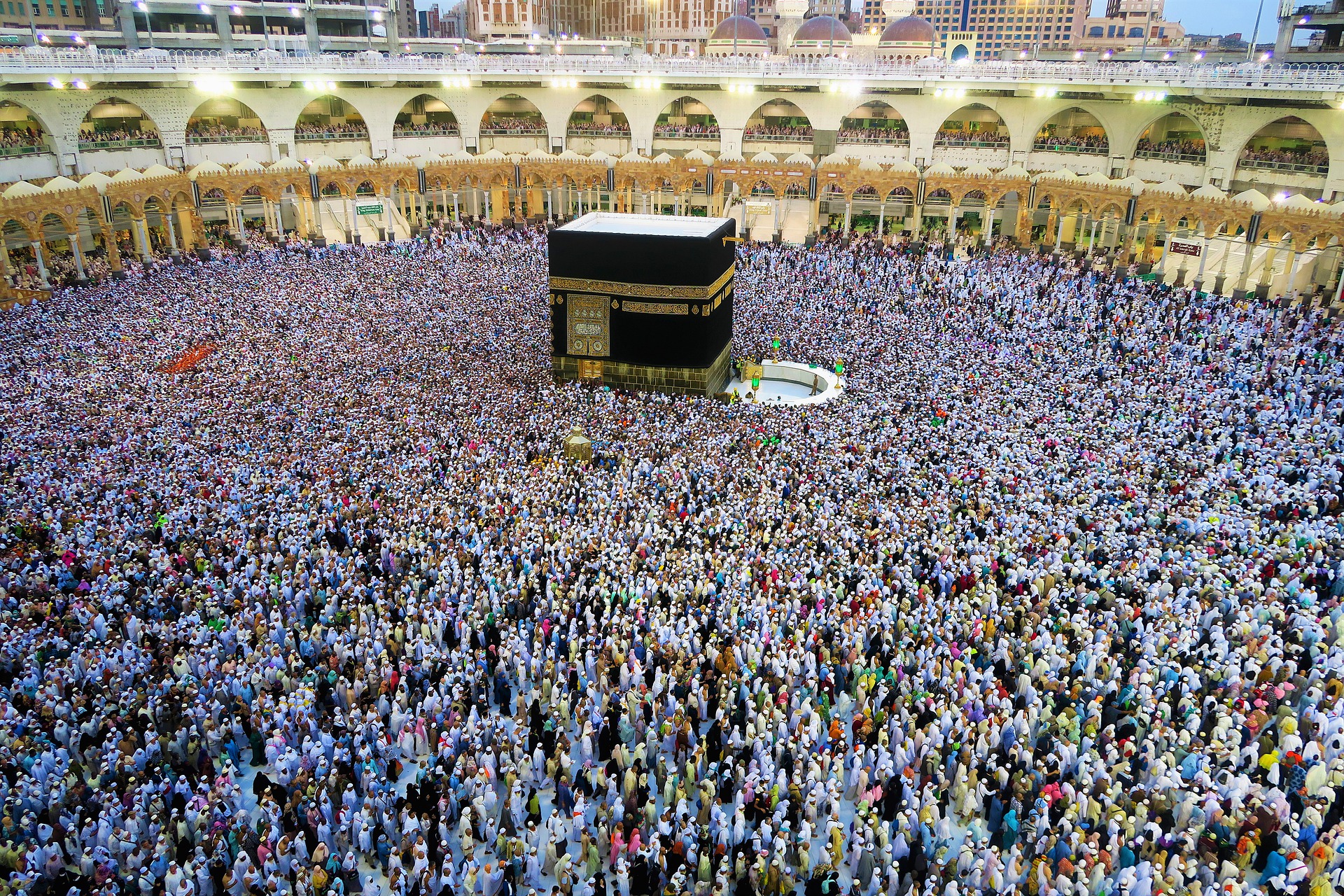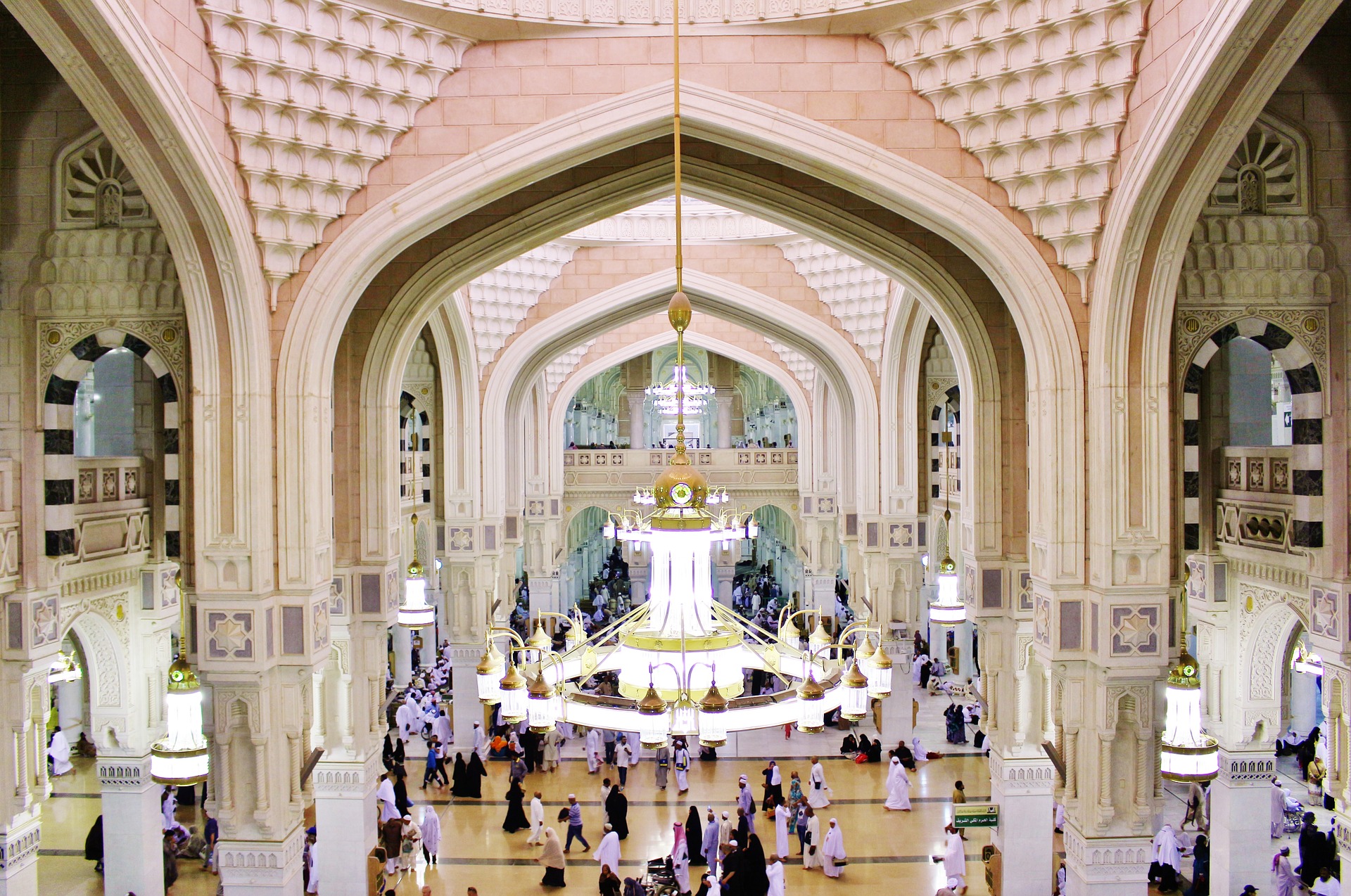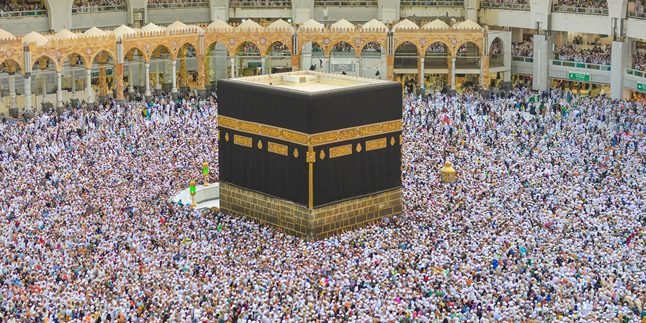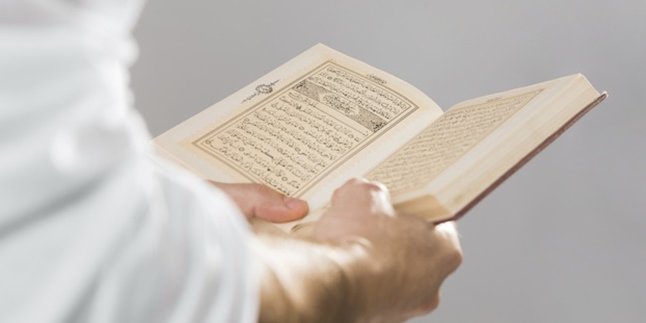Kapanlagi.com - Hajj is one of the five pillars of Islam that can be performed if a Muslim is able to do so. Discussing hajj, there is also a term called Haji Wada. What is Haji Wada? For the followers of the Prophet Muhammad, Haji Wada has a profound meaning. Haji Wada means farewell hajj, which is the last hajj performed by Prophet Muhammad in the year 10 Hijri.
In this article, we will discuss Haji Wada in more depth. What is the law of Haji Wada and the basic principles that KLovers need to know about Haji Wada? This is also a new knowledge that every Muslim needs to know, as well as what lessons can be learned from Haji Wada.
Therefore, from various sources, here is what Haji Wada means, along with the law and basic principles of Haji Wada itself.
1. Understanding Haji Wada

Illustration (credit: pixabay)
As previously explained, Haji Wada means the farewell pilgrimage which is the last pilgrimage for Prophet Muhammad SAW, which was carried out on Dhulhijjah 10 Hijriah (632 CE).
Even Haji Wada is referred to as a sign of the death of Prophet Muhammad SAW which is shown through several signs, such as the conquest of Makkah, a number of Bani Tsaqif figures starting to embrace Islam, and so on. In the activity, after the zuhur prayer, Prophet Muhammad SAW departed from Madinah followed by around 114,000 pilgrims.
The journey to the holy land of Makkah took 8 days. Upon arrival there, he then performed the tawaf worship followed by sa'i between Shafa and Marwa. After that, on 8 Dzulhijah, Prophet Muhammad SAW departed to Mina, stayed there and continued his journey to Arafah.
It was there that Prophet Muhammad SAW delivered his speech. After delivering the speech, Prophet Muhammad SAW shaved his hair and went to Makkah to perform tawaf ifadah and zuhur prayer. Here he drank the zamzam water, then returned to Mina and stayed there.
On the 11th Dhulhijah, Prophet Muhammad SAW threw the jamrah at the jamarat and delivered his speech again. After leaving Mina, he went to Makkah again to perform tawaf wada and continue his journey back to Madinah. This is where the first and last Hajj process took place for Prophet Muhammad SAW.
2. The Law of Farewell Pilgrimage

Illustration (credit: pixabay)
After knowing that Hajj Wada means the last pilgrimage of Prophet Muhammad SAW, KLovers can also learn about the law of Hajj Wada itself. The most important hadith that explains the laws of Hajj performed by the Prophet SAW and his testament at that time is sourced from Jabir and narrated by Muslim.
As quoted from Wikipedia, about Hajj Wada, An-Nawawi said, "This hadith is important and contains various teachings and basic principles of Islam that are very urgent. This hadith is narrated by Muslim alone, because Al-Bukhari did not narrate it in his Sahih book. In addition to Muslim, there is one other narrator who also narrated the hadith, namely Abu Daud. However, the hadith he narrated is exactly the same as that narrated by Muslim."
Then, there is also Qadhi Iyadh who said, "Many people say that the narration is filled with fiqh laws. Even Abu Bakr ibn Mundzir wrote a fairly long chapter to explain the 150 laws that can be derived from the event of Hajj Wada."
Ibn Abbas said that people (in this context, Muslims) should end their pilgrimage at the Ka'bah. While the pillar of Hajj performed at the Ka'bah is Tawaf. So, Muslims are asked to end their Hajj activities by performing Tawaf for the last time before returning to their respective homes, hence the name Tawaf Wada.
Having similar names, the meanings of Hajj Wada and Tawaf Wada are also almost the same. Hajj Wada means farewell Hajj, while Tawaf Wada is a farewell Tawaf. However, the meanings are different, KLovers. Because, Hajj Wada means farewell Hajj with Prophet Muhammad SAW, while Tawaf Wada is performed by Hajj pilgrims after completing the pillars of Hajj, as a sign of farewell to the house of Allah SWT.
What about the ruling of Tawaf Wada? According to the majority of scholars, performing Tawaf Wada is obligatory for Hajj pilgrims. While for Umrah pilgrims, it is sunnah. If you haven't done it, then you are not allowed to leave Mecca. If you don't do it, then you must pay a fine in the form of a goat. Except for menstruating women, they are allowed not to perform the farewell tawaf.
3. Basic Principles of Farewell Pilgrimage

Illustration (credit: pixabay)
And the last discussion for Haji Wada, which means understanding the basic principles of Haji Wada. There are many Islamic teachings that were emphasized and entrusted by Prophet Muhammad to his people at that time. And here are some basic principles of Haji Wada taken from Wikipedia:
1. Announcement of the basic rights of a Muslim, that a Muslim's soul, blood, wealth, and honor are sacred.
2. Notification of the prohibition of injustice, usury, and all dangerous pre-Islamic traditions.
3. Announcement of the basic rights of women and orders to acknowledge the existence of women in a good way. In addition, there is also an explanation of the rights of a husband that must be fulfilled by his wife.
4. Notification of the prohibition of bequeathing inheritance to heirs. There are also several laws on inheritance as written in the Quran.
5. Notification of the prohibition of adopting foster children and treating them as one's own child or attributing the child's name to the caregiver (tabanni). This is also a sign of the prohibition of attributing the name of a child to someone who is not their biological father.
6. Determination that the lineage of a child born out of wedlock follows the person who is on the bed at the time of birth (the legitimate husband of the mother). As for the adulterer or the person who commits adultery with the mother of the child, they must be stoned to death and are not entitled to acknowledge the child as their own.
7. Notification to all Muslims that a Muslim is a person who is able to keep their tongue and hands from doing things that are unpleasant to other Muslims. A believer is someone who can hold the trust in safeguarding the wealth and lives of other Muslims.
A person who migrates is someone who tries to distance themselves from various mistakes and sins, while a mujahid is someone who guides their soul by striving as hard as possible to obey Allah, carry out the entrusted duties, and then convey that trust to the intended person.
8. A warning to all Muslims not to lie and accuse Prophet Muhammad of lying. Therefore, he said, "Whoever lies about me, he will surely reside in his place in Hell."
9. A testament to all Muslims to hold fast to the Quran and Sunnah. Prophet Muhammad said, "And I have left something, if you hold fast to it, you will not be led astray, namely the Book of Allah and the Sunnah of His Messenger."
10. The message that all Muslims are brothers. Therefore, Prophet Muhammad taught every Muslim not to take the wealth of other Muslims except in a good way.
11. The command to Muslims to always submit and obey their leaders, regardless of race, skin color, or social status. Of course, as long as those leaders walk in the corridor established by the teachings of Allah (the Quran).
12. The recommendation that we always compete only in piety and not in sin.
13. The message to be gentle to the weak.
14. The message that there are three things that can keep human hearts away from feelings of revenge and envy, namely sincerity in doing good deeds (doing things only for Allah), following the advice of leaders, and continuing to unite with the ranks of Muslims.
Haji Wada means the farewell pilgrimage that was performed by Prophet Muhammad. Not only knowing the meaning of Haji Wada as the last pilgrimage for Prophet Muhammad, but also the law and principle of Haji Wada.
(kpl/gen/dhm)
Disclaimer: This translation from Bahasa Indonesia to English has been generated by Artificial Intelligence.















